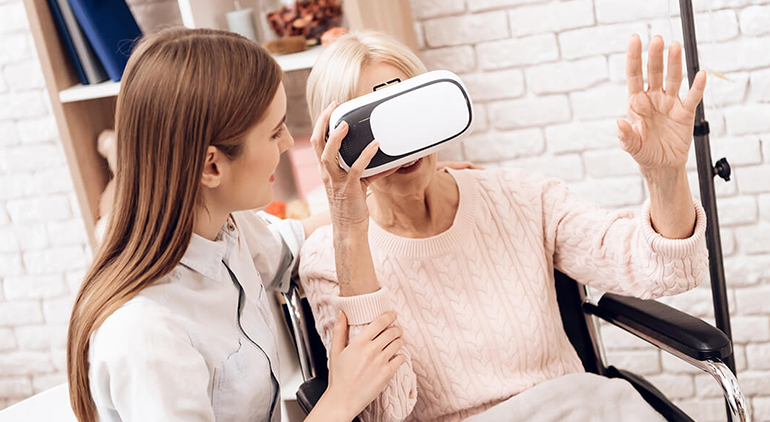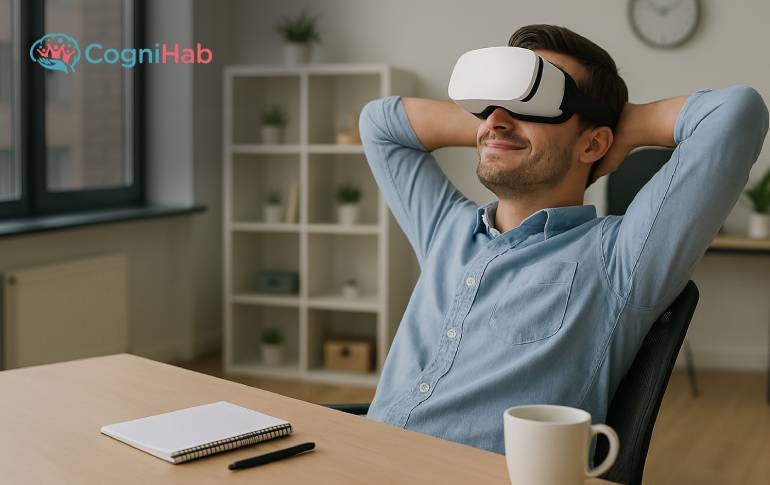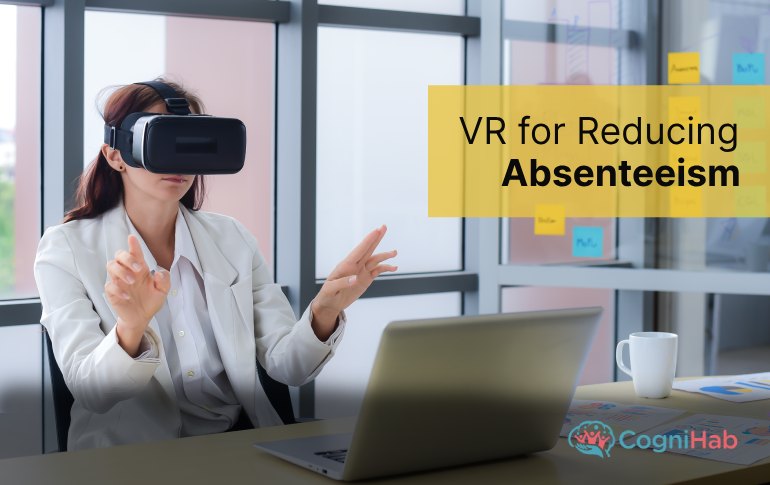Virtual Reality and Alzheimer’s Disease - How VR can Help Alzheimer Patient
The healthcare industry has evolved and transformed over the past few years. As opposed to conventional methods, the healthcare industry has employed virtual reality and its diversified applications throughout its various sectors. Its flexibility, a multitude of applications, and accessibility offer premium quality of care which are both effective and speeds up the recovery process to a great extent.
Virtual reality, thus, is expanding and aiding medical professionals as well as the patients alike. Virtual reality is being used in everything ranging from educating healthcare experts, about surgical preparation and therapy to treat patient’s illness.
Alzheimer’s diseases: What really happens?
Virtual reality is increasingly used in health-related fields and interventions. VR has become a powerful tool in patient management, especially patients suffering from Alzheimer’s or dementia.
Alzheimer’s is the most common form of dementia. According to the World Health Organization, 50 million people across the world suffer from dementia.
Alzheimer’s disease is a progressive disorder that causes brain cells to degenerate and eventually the cells die. This disease is the most common cause of dementia. People suffering from dementia suffer from a continuous decline in their ability to think, behave and socialise. All these causes a steady decline in a person’s ability to function independently.
As the disease progresses, a patient suffering from Alzheimer’s diseases will develop severe memory impairment and lose the ability to carry out everyday tasks.
Virtual reality therapy can be extremely beneficial in improving the condition of people suffering from Alzheimer’s and other types of dementia.
According to a number of researches, incorporating virtual reality environments to the treatment of people suffering from dementia has proven to be helpful for them in a number of ways. The virtual reality-based treatment has helped them to recall old memories, reduced aggressive behaviour, and significantly improved their communication with the caregivers.
How Virtual Reality Can Help Dementia Patients?
Dementia is an umbrella term to describe certain cognitive functions impairment in thoughts, interaction, and memories. The cognitive decline that is associated with dementia typically goes through different progressive stages.
The simulation provided by virtual reality tours has helped dementia patients tap into old memories. The recalling of buried memories formed a feeling of positive mental stimulation among patients. Moreover, this recovery of earlier memories have helped caregivers to learn more about these patients' past lives. According to healthcare experts, this in a way improved the social interaction ability of their patients.
Thus, the advent of VR has had a far-reaching impact and is already changing the way doctors approach Alzheimer’s care.
Use Of Virtual Reality In The Diagnosis Of Alzheimer’s
● Risk Detection:
VR technology has made the detection of Alzheimer’s remarkably easier. This means with the advent of virtual reality, healthcare experts can diagnose younger patients who have an increased risk of developing Alzheimer’s later in life.
● Treatment of Patients
The simulated environment created by virtual reality can transport the patients anywhere, which in return enhance their lost skills significantly. VR’s therapeutic uses are capable of creating customized environments for individual patients and regulate them according to their needs. The creation of the virtual environment is utilised to remind patients of their forgotten childhood.
VR Games For Dementia
Virtual reality-based games help patients to regain or relive old memories by providing new stimuli that are difficult to achieve due to poor health conditions or are inaccessible in a secure environment. VR based games inflict a positive impact on patients' mood and motivation.
The people who are dealing with dementia, a journey through the past, help them cope with the present. Reminiscence based virtual reality games stir up the patients' memories from the past to harness the power of awakened memories.
Sometimes the healthcare experts choose healing space that immerses the patients into a scene using games that involve the use of sensory organs
Virtual Reality For Seniors
Virtual reality is being used to improve the quality of life for senior citizens across the globe. It is being utilized to reduce the feeling of loneliness, anxiety by improving their mental health. By the use of VR, elderly people can be transported to far-flung places without leaving the comfort of their homes.
The virtual reality travel experience can help improve a elderly’s motivation for rehabilitation that can enrich their quality of life. The use of VR is helping them to deal with anxiety because seniors are able to receive a unique emotional feel that is derived out of the virtual reality environment.
At Cognihab we are always innovating promising new technology that holds significant potential by making living easier for our clients and seniors. We are helping patients to rise above their discomfort by harnessing the power of virtual reality.
Cognihab has especially designed technology-driven solutions which use virtual reality to devise specific mental stimuli for patients coping up with Alzheimer’s and dementia.
Cognihab is on the mission to emerge as the world’s premium virtual reality-based healthcare provider for these patients that rejuvenate, rehabilitate, and rewire their mind, body, and soul.
Our products have been tried and tested under the guidance of some of the most experienced healthcare experts and aim to achieve an overall holistic improvement of our users.







